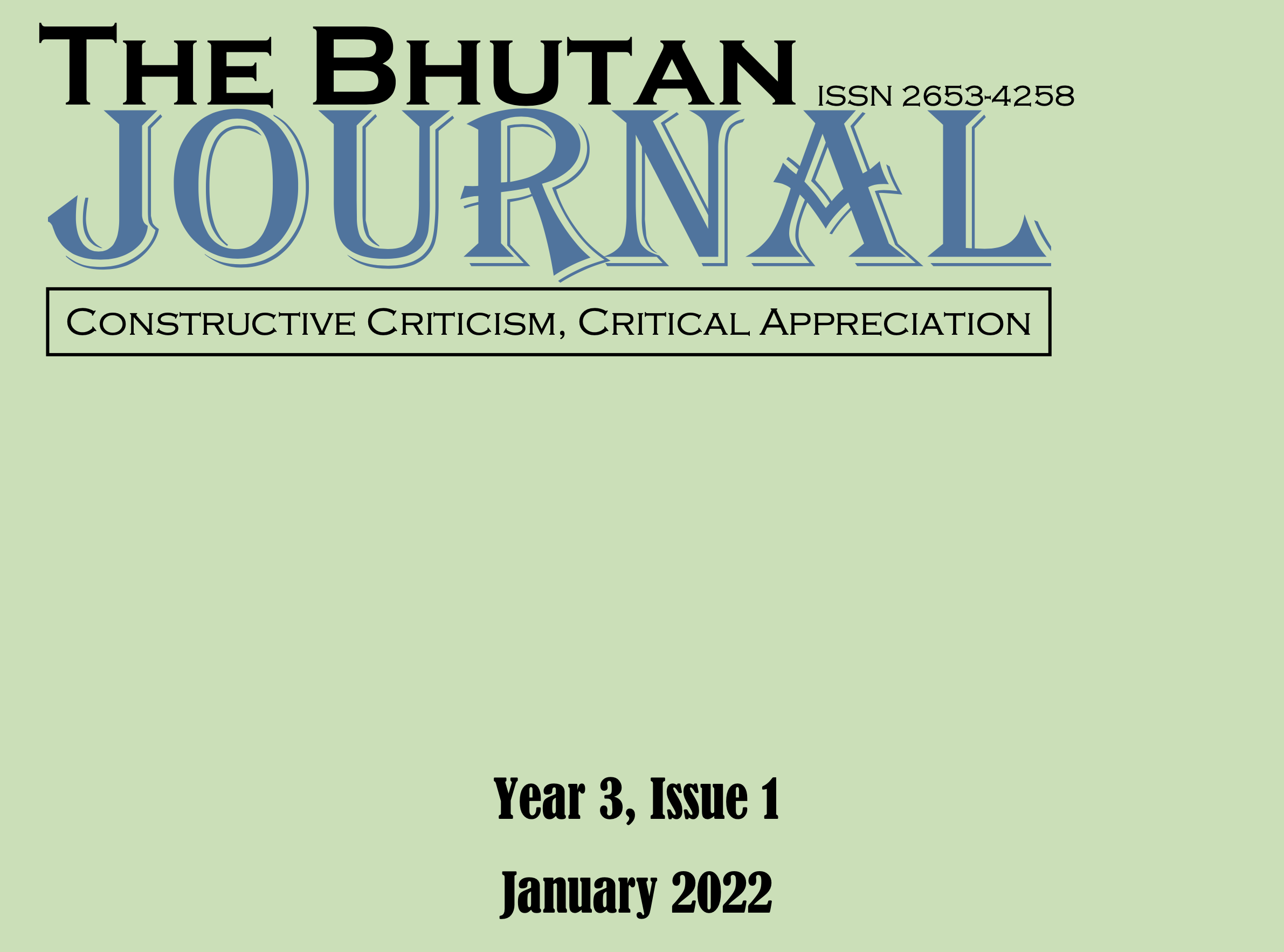Editorial
Growing active role of the monarchy in daily governance and creating new agencies outside the constitutional jurisdiction to take over development activities usually mandated for an elected government are testimonies of the king’s interest in being a pro-active politician and weaken the mandate of an elected government. Weakening of an elected government results in death of democracy and returning to the order of absolute monarchy. That’s has been the repeat history of Bhutan under Wangchuk Dynasty.
Citation: Bhutan Watch. (2022). Editorial. The Bhutan Journal, 3(1); 1-3.
Statelessness Among Former Bhutanese Citizens: An Issue of Public Concern
By Ram Karki
Much has been studied and written on Gross National Happiness (GNH) and Bhutanese Refugee Issue in the past decades, but scholars and researchers are yet to write on the issue of statelessness among the former Bhutanese Citizens. This paper attempts to find a suitable answer of how a country that propagates the philosophy of happiness could revoke the citizenship of its people and escape from crime.
Citation: Karki, R. (2022). Statelessness Among Former Bhutanese Citizens: A Public Issue of Concern. The Bhutan Journal, 3(1); 4-21.
Citizenship and Marriage Laws of Bhutan
By Govinda Rizal
Citizenship of a state is the right of the holder to have rights as any other member of the state. Categorisation of citizenship creates distinct groups with different limitations, rights, and privileges and makes citizens unequal before the law. In Bhutan, there are three major and seven subcategories of citizens created by the government. This article highlights the background of promulgation of citizenship and marriage laws and their implication.
Citation: Rizal, G. (2022). Citizenship and Marriage Laws of Bhutan. The Bhutan Journal, 3(1); 22-40.
LDC Graduation: Opportunities and Challenges for Bhutan
By I P Adhikari
Bhutan is graduating from Least Developing Country (LDC) status in 2023. Fair political stability, consistent economic growth, and improved social indicators in the last few decades helped the country achieve this status early on. However, Bhutan will face tough challenges following graduation as the resources allocated for LDCs are not available. The country also has the challenge to ensure it does not return to LDC status again. This article investigates the process, progress, and challenges of the country for when it attains the status of a developing nation.
Citation: Adhikari, I.P. (2022). LDC Graduation: Opportunities and Challenges for Bhutan. The Bhutan Journal, 3(1); 41-65.
Gender Violence Within Bhutanese American Community
By C M Nirola
Gender violence is an old problem worldwide. It is not an exception in the Bhutanese community. However, the severity of the problem has grown substantially within the Bhutanese American community following resettlement. In most cases, the victims are women and girls. A deeper investigation and historical authenticity are required to unveil the cause and catalysts of the problem. This research digs out the causes and seeks a solution to the problem.
Citation: Nirola, C.M. (2022). Gender Violence Within the Bhutanese American Community. The Bhutan Journal, 3(1); 66-76.
Interview with Father David Townsend
Interview with Father David Townsend about the Bhutanese refugee issue, his engagement through the Bhutanese Refugee Education Programme and standards of the education system he led.
Citation: Townsend, D. (2022). Interview with Father David Townsend (Govinda Rizal & I P Adhikari, Interviewer). The Bhutan Journal, 3(1); 77-81.
Read full journal here in PDF
